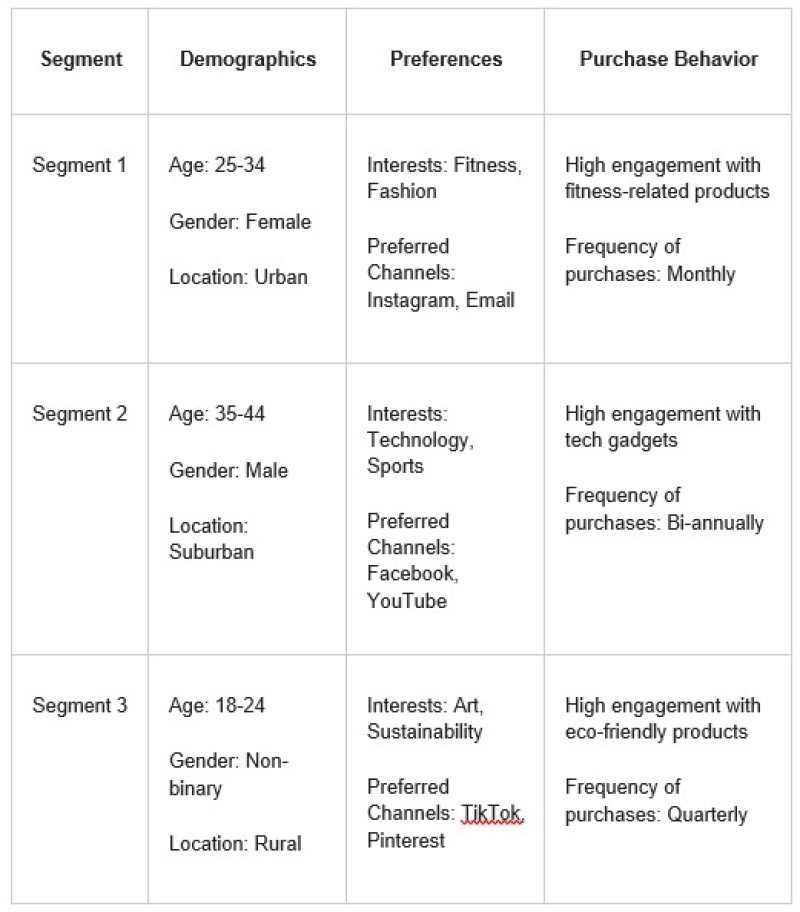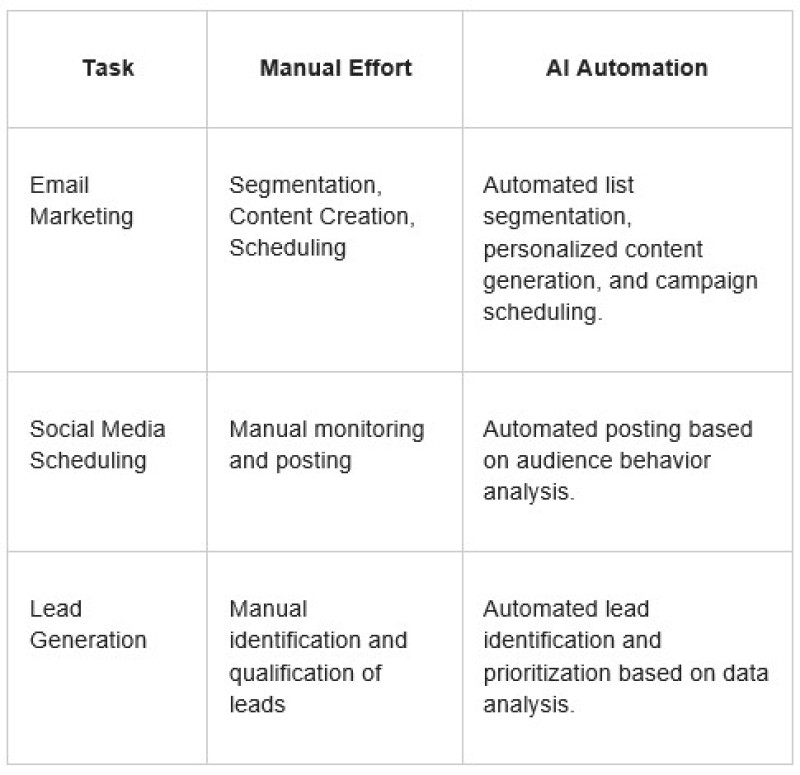Artificial intelligence (AI) has the potential to revolutionize marketing strategies and drive success in businesses. By leveraging AI technology, you can enhance efficiency, accuracy, and personalization in your marketing campaigns. AI-powered tools can analyze and organize vast amounts of data, leading to improved targeting, messaging, and campaign effectiveness. Additionally, AI can assist in automating time-consuming tasks and enhancing customer engagement. However, it is essential to consider ethical and legal considerations when implementing AI, and to strike the right balance between automation and creativity.
Key Takeaways:
- AI technology can enhance efficiency, accuracy, and personalization in marketing campaigns.
- AI-powered analytics tools can analyze and organize data for improved targeting, messaging, and campaign effectiveness.
- AI can assist in automating time-consuming tasks and enhancing customer engagement.
- Consider ethical and legal considerations when implementing AI in marketing strategies.
- Strike a balance between automation and creativity to leverage AI successfully.
Analyzing and Organizing Data
When it comes to marketing, data analysis is a critical factor in driving campaign effectiveness. With the advent of AI-powered analytics tools, marketers now have the ability to extract valuable insights from vast amounts of data.
These tools can quickly and accurately analyze large datasets, including customer behavior data and campaign performance metrics. By leveraging AI for data analysis, you can gain a deeper understanding of your audience, identify trends, and make data-driven decisions to optimize targeting and messaging.
AI-powered analytics tools provide marketers with the capability to organize and categorize data in a structured manner. By organizing data into meaningful segments, you can easily identify patterns and correlations that can inform your marketing strategies.
For example, you can analyze customer demographics, preferences, and purchase history to create targeted campaigns that resonate with your audience. Furthermore, AI enables you to measure the effectiveness of your campaigns by tracking key performance indicators (KPIs) and making real-time adjustments for better results.
Example Table: Customer Segmentation Analysis

As shown in the example table above, analyzing data through AI-powered analytics tools can help you identify distinct customer segments based on demographics, preferences, and purchase behavior. This level of granularity allows you to tailor your marketing messages and offers to each segment, increasing the relevancy and effectiveness of your campaigns.
By leveraging AI to analyze and organize data, you can gain valuable insights, optimize your targeting and messaging, and ultimately improve the effectiveness of your marketing campaigns.
Personalization
Personalization is a key aspect of modern marketing strategies, and AI-driven personalization takes it to the next level. By analyzing customer data and preferences, AI tools can deliver customized experiences that resonate with individual customers. This level of personalization can greatly enhance customer engagement and loyalty.
Using AI technology, marketers can gain insights into customer behavior patterns, purchase history, and preferences. Armed with this information, they can create tailored content and experiences that cater to each customer's unique needs and interests. AI-powered systems can dynamically generate personalized product recommendations, email subject lines, and website content, ensuring that every interaction feels relevant and valuable to the customer.
With AI-driven personalization, marketers can go beyond basic segmentation and truly connect with customers on a deeper level. By delivering customized experiences, brands can foster stronger relationships, encourage repeat business, and drive customer advocacy. It's a powerful tool in today's competitive market, where consumers expect personalized interactions and experiences.
Benefits of AI-Driven Personalization:
- Enhanced customer engagement and loyalty
- Improved customer experiences
- Increased conversion rates
- Higher customer satisfaction
- Greater brand affinity
However, it's important to strike a balance between automation and human creativity when implementing AI-driven personalization. While AI can analyze vast amounts of data to deliver personalized experiences, it's essential to maintain the brand's unique identity and emotional connection with customers. Marketers must ensure that AI is used as a tool to enhance and support their creative strategies, rather than replacing the human touch entirely.
By incorporating AI-driven personalization into their marketing strategies, businesses can stand out in a crowded market and build lasting relationships with their customers. With the ability to deliver customized experiences at scale, AI is transforming the way brands connect and engage with their target audience.
Personalizing Ad Creatives with AI
In the fast-paced world of digital marketing, personalized content is key to capturing the attention of target audiences. AI is revolutionizing how brands approach visual content creation by offering a wide array of options for AI picture creator tools.
These tools allow marketers to craft custom images tailored to specific demographics, interests, or even individual consumer behaviors. By leveraging AI to generate personalized visuals, brands can enhance the relevance and appeal of their advertising campaigns, ensuring that their messages resonate more deeply with each unique segment.
Whether it’s adjusting color schemes, adding personalized text, or creating unique product images, AI offers endless possibilities to make ads feel more connected to the viewer, leading to higher engagement and conversion rates.
Time-Consuming Tasks
In today's fast-paced marketing landscape, time is a precious resource. As a marketer, you understand the importance of optimizing your workflow and maximizing productivity. This is where AI-powered tools can be a game-changer. By leveraging automation, you can streamline time-consuming tasks and focus on more strategic initiatives that drive results.
One area where AI can significantly reduce manual effort is email marketing. AI-powered email marketing platforms can automate processes like list segmentation, personalized content creation, and campaign scheduling. With intelligent algorithms, these tools can analyze customer data and behaviors to deliver hyper-personalized emails that resonate with your audience. By automating your email marketing, you can save countless hours while still providing a tailored experience for your subscribers.
Social media scheduling is another area where AI can help marketers reclaim their time. AI-powered tools can analyze your audience's online behavior and preferences to determine the best times to post content for maximum engagement. With automated scheduling, you can plan and schedule your social media posts in advance, ensuring a consistent presence without the need for constant manual monitoring.
By leveraging AI for time-consuming tasks, marketers can save valuable time and resources while still delivering personalized experiences to their audience.
Lead generation is a crucial aspect of marketing, but it can be a time-consuming and resource-intensive process. AI-powered lead generation tools can automate the process of identifying and qualifying leads, reducing manual effort and allowing you to focus on nurturing relationships with high-quality prospects.
With advanced algorithms, these tools can analyze data from various sources, such as website visitors, social media interactions, and previous customer interactions, to identify potential leads and prioritize them based on their likelihood to convert.

By leveraging AI for time-consuming tasks, marketers can save valuable time and resources while still delivering personalized experiences to their audience. However, it is important to ensure that AI tools are properly integrated into your overall marketing strategy and aligned with your business goals. Regular monitoring and adjustments are crucial to optimizing AI algorithms and maximizing their impact.
Conclusion
When it comes to marketing, incorporating AI into your strategies can deliver a wide range of benefits. By leveraging AI-powered tools, you can enhance efficiency, personalization, and customer experiences.
One of the key advantages of AI in marketing is the ability to analyze vast amounts of data using AI-powered analytics tools. This data-driven approach allows for better decision-making and optimization of marketing campaigns. By understanding customer behavior and preferences, you can create targeted messaging and improve campaign effectiveness.
Moreover, AI can assist in automating time-consuming tasks such as email marketing, social media scheduling, and lead generation. By leveraging AI for these routine tasks, you can free up valuable time and resources, allowing you to focus on more strategic initiatives.
However, it's important to approach AI implementation with caution. Ethical and legal considerations must be taken into account to ensure that AI is used responsibly. Additionally, it's crucial to strike the right balance between automation and human creativity. By maintaining the brand's unique identity and emotional connection with customers, you can ensure the success of your AI-powered marketing efforts.
FAQ
How can AI be leveraged in marketing?
AI can be leveraged in marketing through the use of AI-powered analytics tools, automation of time-consuming tasks, and enhancing personalization in campaigns.
What role do AI-powered analytics tools play in marketing?
AI-powered analytics tools are crucial in analyzing and organizing data for marketing purposes. They can quickly and accurately analyze large datasets, providing valuable insights for targeting, messaging, and campaign effectiveness.
How does AI enhance personalization in marketing?
AI analyzes customer data and preferences to deliver customized experiences and content. This level of personalization leads to more effective marketing campaigns, increased customer engagement, and enhanced loyalty.
Can AI automate time-consuming marketing tasks?
Yes, AI-powered tools can automate routine or time-consuming tasks such as email marketing, social media scheduling, and lead generation. This allows marketers to focus on more strategic work.
What are the benefits of leveraging AI in marketing?
Leveraging AI in marketing can lead to improved efficiency, personalized customer experiences, and data-driven decision-making. It also allows businesses to save resources and focus on more strategic initiatives.
 Peter Smith
Peter Smith

 Peter Smith
Peter Smith


